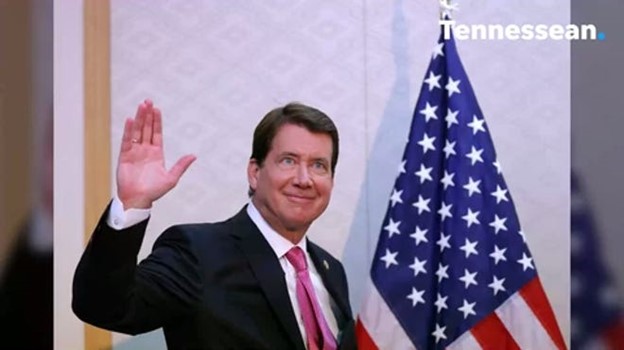Tennessean | Natalie Allison | 2/26/2021
Tennessee’s U.S. Sen. Bill Hagerty has filed his first bill, one that seeks to place a check on President Joe Biden’s ability to roll back sanctions on Iran.

The legislation, filed Thursday and which Hagerty is calling the “Iran Sanctions Relief Review Act of 2021,” is co-sponsored by 21 Republicans.
Democrats, who control the U.S. Senate by a slim majority, have not signed on to the bill.
“The United States cannot fall victim again to Tehran’s blackmail, bribery, and extortion by giving into its demands for sanctions relief,” Hagerty said in a statement, describing the Biden administration’s efforts to re-engage in diplomacy with Iran as “irresponsible and dangerous.”
Under former President Barack Obama, the United States in 2015 entered a deal with Iran to lift economic sanctions in an effort to ensure a peaceful nuclear program, an agreement known as the Joint Comprehensive Plan of Action.
Former President Donald Trump withdrew the U.S. from the JCPOA and renewed sanctions, though the Biden administration has signaled in the past week an interest to return to diplomacy with Iran.
A 2019 memo from Trump’s Department of State highlighted Iran’s continued terrorist-related activity.
Hagerty’s office notes his plan is similar to a law passed with bipartisan support in 2017 that allows Congress to approve or block relief on sanctions against Russia.
Hagerty, the former Trump-appointed ambassador to Japan, has been outspoken in recent days about Biden’s consideration of lifting sanctions on Iran, arguing that doing so now would remove the United States’ leverage to tackle human rights issues and other threats posed by the country.
A regional spokesperson for Biden did not immediately respond to a request for comment on the proposal.
The prospect of re-entering diplomatic negotiations with Iran is supported by Biden’s Secretary of State Antony Blinken, whom Hagerty commended as he voted last month to confirm him, noting in a statement at the time that the two had discussed nuclear threats in Iran.